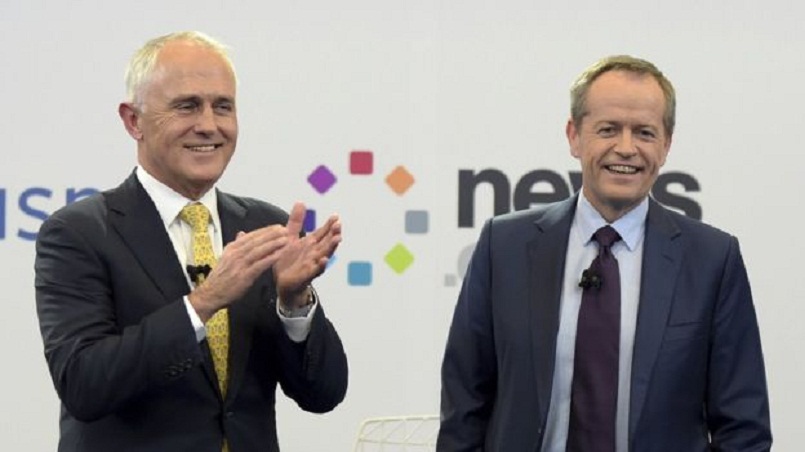
It's a bright day in winter at Manly, one of Sydney's seaside gems, and Australians have one pressing political matter on their minds.
For the most part, it is not this weekend's federal election, but a monumental vote far away in the United Kingdom.
"Now that exit [or] whatever you call it has happened in Europe it is a bit of a worry over here," said Peter Evans, a middle-aged voter from the nearby suburb of Freshwater.
"We're not sure what is going to happen, but we've got troubled times ahead."
This was by no means a scientific enterprise, more a random collection of opinions, but the vast majority of those we quizzed on a chilly afternoon this week were concerned by Brexit and its potential implications for Australia.
"People want to see stability and confidence in a world market that is a little bit unstable, and Australia has been very stable for quite a long time," added Carol, a retail worker from Sydney.
Britain's decision to leave the European Union prompted Australia's political leaders to re-emphasise their economic security credentials ahead of the election this Saturday.
'Great challenges'
The Prime Minister, Malcolm Turnbull, who leads a centre-right coalition government, urged the nation to trust him.
"Given that we are living in a world of great opportunities, but also great challenges and uncertainties, now more than ever Australia needs a stable, majority coalition government with a strong economic plan," he told reporters.
Meanwhile the opposition Labor leader, Bill Shorten, drew unflattering parallels between the prime minister and his besieged British counterpart.
"Mr Turnbull just says because there has been an upset you should vote for him. The problem is the nature of the upset we have seen arises out of weak leadership and a divided government.
"What we saw there is David Cameron hostage to the right wing of his political party, compromising his own beliefs, providing weak leadership. Sounds familiar, doesn't it?" he said.
Building new growth
Australia is a country in transition. As a long and lavish mining boom comes to an end, this land of 24 million people is banking on a reinvigorated construction industry, along with manufacturing, agriculture and the services sector, including tourism.
In parts of Sydney, cranes are silhouetted in the sun as a swathe of new apartment blocks gradually emerge, alongside upgraded transport links.
For decades immigrants have been been part of Australia's economic success story, and times are good for Morteza Poorvadi, a 32-year-old refugee who fled Iran in 1999 when his mother was accused of being an Iraqi spy.
He has a degree in mathematical science but now runs a small company fitting showers and kitchens.
"Right now business is booming, especially in [the] building industry in Sydney," he told me at a construction site near the home of the 2000 Olympics.
"The government started to realise that mining is not there forever and they needed to start looking at a new way to create work, to create wealth for our country. The more migrants we get to come to Australia the stronger our economy is becoming."
Government limitations?
The last time Australia slipped through the trap-door into recession was in the early 1990s, and voters expect their next prime minister to have a firm plan to ensure future prosperity.
There is, though, only so much governments can do to keep the good times rolling in an age of globalised trade, capricious exchange rates and competing national interests.
But Professor Rodney Smith from the University of Sydney believes political leaders are able to create frameworks for success.
"Australian governments, like governments in most places around the world, have fewer mechanisms to control the economy than they once did.
"But they can still influence economic factors, particularly through infrastructure investment, through the sorts of trade deals they strike with different countries, and, more indirectly and in the longer term, through things like education," he told BBC News.
